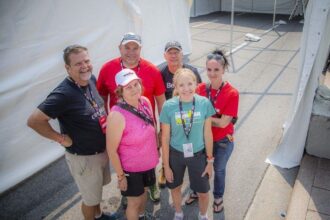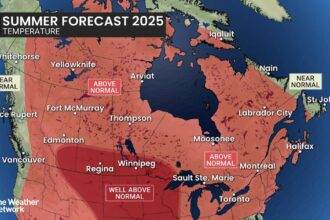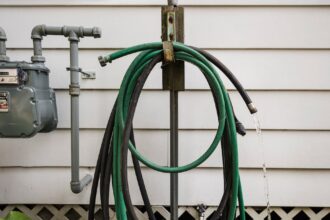In the heart of Winnipeg’s North End, a new beacon of hope has emerged from profound tragedy. Morgan’s Warriors, a grassroots Indigenous outreach initiative, now walks the streets where Morgan Harris once did, offering vital support to the community’s most vulnerable residents before she became one of the victims in a case that shook the nation.
“When we’re out there, we feel Morgan’s presence guiding us,” says Cambria Harris, Morgan’s daughter and founder of the outreach program. “Every person we help is a way of honoring what my mother would have wanted—to protect those society often forgets.”
Morgan Harris was one of four Indigenous women believed to have been killed by alleged serial killer Jeremy Skibicki between March and May 2022. Her remains, along with those of Marcedes Myran, are presumed to be in the Prairie Green Landfill north of Winnipeg, though a search has not yet been conducted due to political and financial roadblocks that have outraged Indigenous communities across Canada.
Rather than surrendering to grief, the Harris family transformed their pain into purpose. Every Sunday, Morgan’s Warriors distributes essential supplies throughout Winnipeg’s inner city—from warm clothing and food to harm reduction supplies and basic necessities. The initiative has quickly grown from a family effort to a community movement with dozens of volunteers.
“People often ask why we’re doing this when we’re still fighting for justice ourselves,” explains Kera Harris, Morgan’s other daughter and co-founder. “The answer is simple: this is how we heal. By helping others, we keep my mom’s spirit alive and ensure her story doesn’t end with tragedy.”
The program operates with remarkable efficiency despite limited resources. Volunteers coordinate through social media, collecting donations and identifying areas with the greatest needs. Special attention is given to homeless encampments and areas known for high rates of substance use and vulnerability.
What distinguishes Morgan’s Warriors from other outreach efforts is its deeply personal approach. Volunteers don’t merely distribute supplies—they build relationships, learn names, and follow up with those they serve. This approach reflects traditional Indigenous values of community care and interconnectedness.
“We’re not just handing out necessities,” notes volunteer coordinator Lisa Murdock. “We’re creating connections between people who society has pushed to the margins and reminding them they belong to a community that cares.”
The program has garnered attention from Canadian politicians and community leaders who recognize its effectiveness in reaching those often missed by institutional support systems. Several local businesses have become regular donors, providing everything from bottled water to winter boots.
Indigenous elders play a crucial role in the program, offering traditional teachings, ceremonial support, and guidance to both volunteers and recipients. This cultural component provides spiritual sustenance alongside material aid—a holistic approach reflecting Indigenous wellness models.
“Morgan would be proud of what her daughters have created,” says Elder Sarah Whitehawk, who regularly accompanies the outreach team. “They’ve turned unbearable pain into a medicine that heals not just themselves but our whole community.”
The Harris family continues to advocate for a comprehensive search of the landfill where Morgan’s remains are believed to be located—a fight they pursue simultaneously with their outreach work. The dual focus requires extraordinary resilience, but they see both efforts as interconnected aspects of seeking justice.
“When we help someone on the streets, we’re fighting the same system that failed my mother,” Cambria Harris explains. “The people we serve face the same prejudice and indifference that allowed her disappearance to be dismissed initially.”
As news of Morgan’s Warriors spreads, similar initiatives have begun appearing in other Canadian cities with significant Indigenous populations. The model—combining practical assistance with cultural reconnection and advocacy—addresses multiple dimensions of the crises facing Indigenous communities.
Looking ahead, the family hopes to secure stable funding to expand their services and potentially establish a permanent support center. Their vision includes offering counseling, cultural programming, and employment assistance alongside immediate relief efforts.
As Canada grapples with its ongoing legacy of harm against Indigenous peoples, Morgan’s Warriors offers a powerful example of community-led healing. In the absence of adequate governmental response, families like the Harrises are creating their own solutions—solutions grounded in Indigenous values and lived experience.
What would our communities look like if we addressed all tragedies with this same determination to create meaningful change rather than merely mourning the victims?











